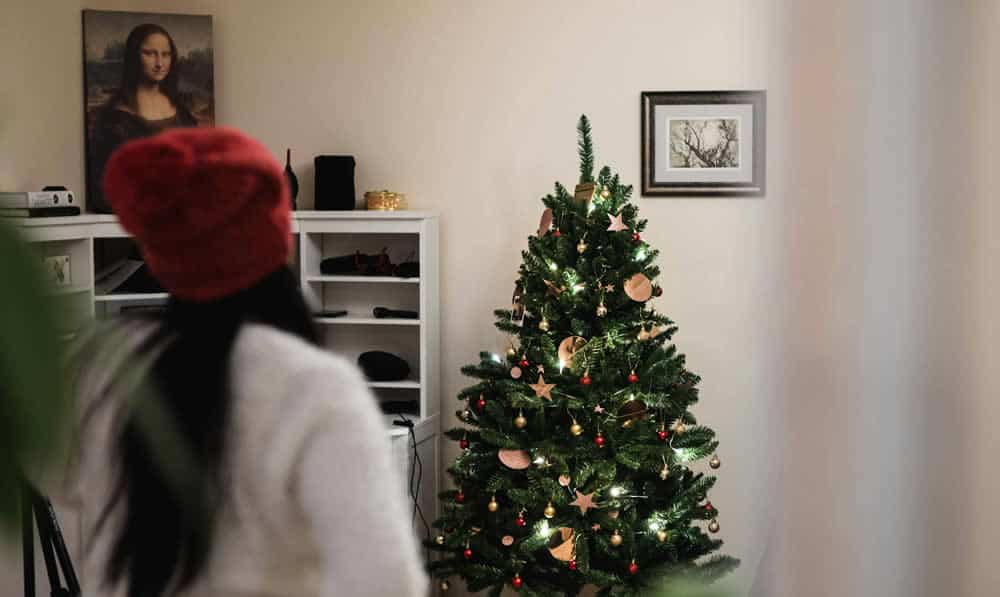‘Tis the season to be jolly – but there is nothing jolly at all about facing a deposit dispute at the end of a tenancy. From decorations that have been left up when the tenancy moves out to damage that has been caused by harsh weather conditions during the winter, tenancy deposit scheme SafeDeposits Scotland observes numerous types of deposit disputes during and as a result of the festive period.
Un-deck the halls
It’s unlikely that too much time will be spent in the garden during the frosty winters – particularly on those rare snowy days – however, that doesn’t mean the garden should be completely forgotten about when it comes to deposits. It’s not uncommon for houses to be adorned with bright fairy lights, wreaths and even dancing Santa Clauses on the porch during the holiday period. While most households will begin to take down these decorations not too long after Christmas has passed, it is not uncommon for people to keep their decorations up a little longer. If the tenant moves out and has not removed Christmas decorations that have been put up in the garden, this could be grounds for the landlord to make a claim on the deposit for gardening, even in situations where it is just a couple of fairy lights on the fence that have been forgotten about.
Decorations in the interior of the property are perhaps even more common than those in the garden. It’s hard to think of Christmas without thinking of a Christmas tree as the centerpiece of the living room, along with garlands of tinsel adorning the headers of doorways in shimmering greens, reds, silvers and golds. While forgetting to take down the Christmas tree itself is unlikely due to its significance, other decorations should be taken down before the tenant leaves the property, including any baubles that may have fallen off of the tree and rolled underneath the furniture. Strands that have fallen off of tinsel and landed on the carpet or furniture should be tidied up so as to prevent claims for cleaning, as should any artificial snow that has been sprayed on the windows. If tinsel has been taped to walls then the tenant should make sure there is no tape stuck to the wall after it is taken down – tape stuck to the wall could absolutely be grounds for a claim under redecoration if its removal damages paintwork or wallpaper
Burst pipes and blocked drains
During particularly cold winters, pipes may be at risk of bursting. This happens when the pipes get so cold that the water inside freezes, expands and eventually bursts. Burst pipes are a potential hazard for water damage within the property, and although an adjudicator would take the cold weather into account in a deposit dispute, there are measures the tenant can take to minimise the risk of pipes freezing in the first place, and avoid any dispute with the landlord over burst pipe-related damages.
Keeping the heating on in the property, even when there is nobody home, can ensure that heat is regulated throughout the home and the pipes are less likely to freeze. Keeping an eye on the weather forecast and setting a timer for the heating to go on at certain times of the day where it is colder can be helpful, especially if the tenants are away from the property for the holidays and unable to turn on the heating manually. Leaving taps on a low drip will also keep water flowing through the pipes and the continuous pressure can help to prevent freezing. Always be sure to alert the landlord immediately in the instance of a burst pipe.
Exploding pipes are not the only weather-related worry during the winter months, as debris including fallen leaves and twigs that have been carried by wind can also get caught in gutters and cause blockages. Blocked drains could lead to damp spots in the walls and leaking from ceilings as excess water pools up in the gutters and cannot flow due to blockage.
Mould, damp and condensation are particularly common during the colder parts of the year and a mould problem that isn’t dealt with swiftly can spread, becoming tougher to deal with and even causing potential health risks to occupants of the property. The tenant should let the landlord know when mould is spotted and take the necessary preventative measures to stop it in its tracks, such as opening windows for ventilation and turning on the extractor fan when showering.











